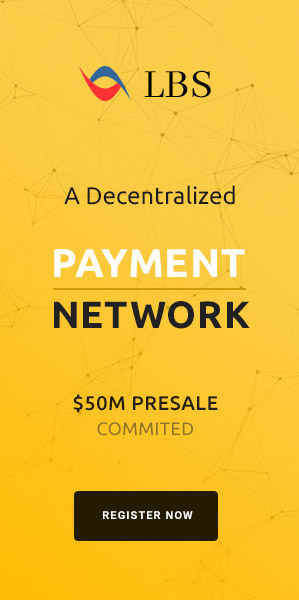The purchases of Bitcoin by Blockchain Group
The first known purchase of BTC by the company dates back to November 2024, when it managed to buy 15.
In December, it had brought the number of Bitcoin held to 40, and until a few days ago, it had stopped there.
The by far main purchase is the one announced yesterday, which increases the number of BTC held from 40 to 620.
The average purchase cost is about $87,000, but obviously it is strongly influenced by having made it yesterday.
At this moment, it has a market capitalization of about 50 million dollars, compared to a value of BTC held of almost 54 million.
“`
The French company declares to adopt “BTC Yield“, “BTC Gain” and “BTC € Gain” as key performance indicators (KPI) for its strategy launched in November.
For now, it has achieved an annualized BTC Yield of about 710%, with an average annual increase of Bitcoin of about 284 BTC, and an annual increase in euros of about 23 million.
The purchases were made by issuing a convertible bond announced on March 6, 2025, as part of the acceleration of its Bitcoin Treasury Company strategy.
Therefore, the strategy is based on the issuance of debt securities to raise euros to be allocated for the purchase of BTC.
The goal, in fact, is solely to increase the number of BTC held per share, also because currently, with over 86 million shares in circulation, 620 BTC is not much.
Thanks to all this, Blockchain Group has become the first true European Bitcoin Treasury Company, after Strategy (formerly MicroStrategy) in the USA and Metaplanet in Japan.
The French company should not be confused with Blockchain.com, an American company that has nothing to do with Blockchain Group and that operates a famous crypto platform.
“To rigorously discuss the constitution of a sovereign reserve of bitcoin value is in the public interest and will be decisive for our prosperity. After all, bitcoin is digital gold, the gold of the internet.”
Not only that, Guerra also highlighted the characteristics of the cryptocurrency, such as its digital and deflationary scarcity, unlike government currencies, which can be printed and inflated.
Specifically, Guerra emphasized the value of Bitcoin as a transactional tool and as a store of value.
“It is a technology that allows us to transfer wealth from one end of the planet to the other with agility and to preserve the fruits of our labor efficiently and securely,”
The intervention of Guerra came during the inauguration ceremony of the new President of the FPBC (Fronte Parlamentare per il Brasile Competitivo).
The government has decided that the new regulations will apply to the main operators of digital platforms, including exchange, servizi di custodia e broker di criptovalute. Every platform that manages digital assets will need to obtain an Australian Financial Services Licence (Australian Financial Services Licence, AFSL), while small businesses and those not directly involved in financial services will be exempt from this obligation.
The objective is to encourage innovation while ensuring that Australians can use and invest in cryptocurrencies safely. The reform will allow for the adoption of user protection measures, preventing fraudulent behavior and improving transparency in the sector.
The government has announced that a public consultation will be initiated before the final adoption of the regulatory framework. The draft law will be presented during the year to gather opinions from stakeholders and industry experts.
The new regulatory plan is not limited to the regulation of exchanges, but aims to modernize the entire Australian financial system. Among the main areas of interest are:
In this regard, the Ministry of the Treasury is collaborating with the Reserve Bank of Australia (RBA) to assess the feasibility of an Australian CBDC. Last September, a joint report between the central bank and the Ministry of the Treasury highlighted the potential of CBDCs in strengthening domestic financial markets.
The next steps involve tests and experiments with tokenized digital currencies, stablecoin, and other innovations in the sector. The goal is to understand the operational and regulatory impacts of these instruments before a potential large-scale adoption.
In parallel with the investigations into foreign exchanges, South Korean regulators are addressing suspicions of financial misconduct also among the local exchanges.
On March 20, prosecutors searched the Bithumb headquarters following allegations of embezzlement against the former CEO, Kim Dae-sik.
Kim is suspected of having used company funds to purchase an apartment, in violation of financial regulations.
However, the company responded by stating that the former CEO had already arranged to reimburse the funds through a loan, rejecting the allegations of misconduct.
Besides the Bithumb case, rumors about illicit practices related to the listing of new digital assets have emerged.
According to anonymous sources cited by Wu Blockchain, some projects have allegedly paid million-dollar fees to intermediaries to be listed on exchanges like Upbit and Bithumb.
In the face of these accusations, Upbit has requested transparency, inviting the source of the accusations to reveal the names of the projects involved.
The absence of concrete details still makes the developments of this matter uncertain, but the reported favoritism practices in the listing could compromise the credibility of the crypto sector in South Korea.
| Type of Violation | Maximum Penalty |
| Use of prohibited AI | €35 million or 7% of global turnover |
| Violation of requirements for high-risk AI | €15 million or 3% of global turnover |
| Misleading information to authorities | €7.5 million or 1% of global turnover |


Recent Commens